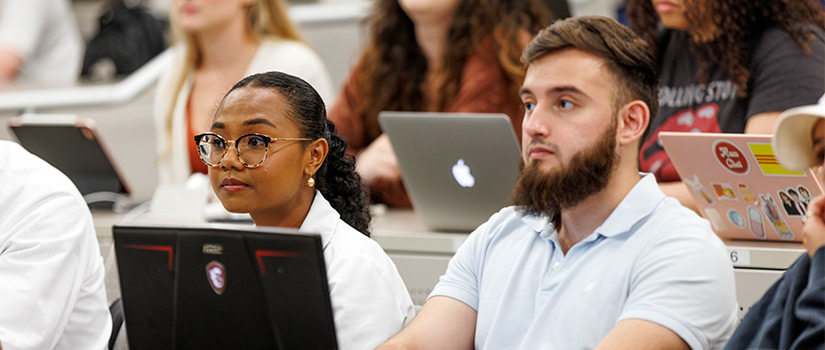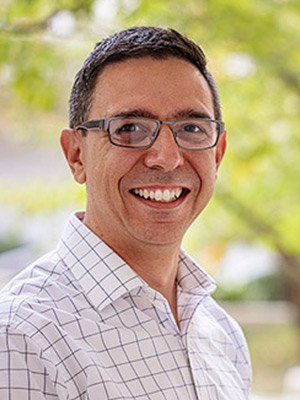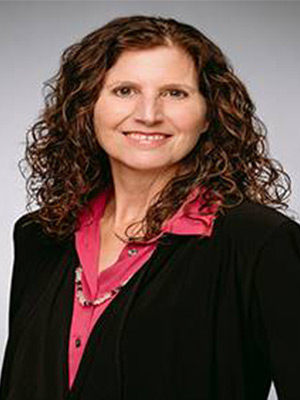Administrators, faculty, staff and students at the University of South Carolina gathered at the start of the semester at the Graduate Education Summit with a common goal: to explore the future of graduate education at the university and determine concrete steps on the path forward.
Wholesale graduate education reform is a tall order.
Boasting more nationally ranked graduate degree programs than the combined total of all other South Carolina colleges and universities, the Graduate School forms an elaborate web of disciplines and career outcomes. With an ambitious agenda of change covering advising, program design, student integration into the academic community and curricular reform, the prospect of rethinking graduate programs is challenging – but dedicated faculty and staff are already enthusiastically embracing opportunities to explore the best avenues for improvement.
Luckily, they have models to look to for inspiration. The College of Engineering and Computing and the College of Social Work, both presenters at the Graduate Summit, offer two examples of successfully revising their graduate programs to better meet the needs of students.
Civil and Environmental Engineering
For engineers, a bachelor’s degree is often the final stop of university education, and with good reason. In the industry, four years of post-degree training under the supervision of a professional engineer is the norm, culminating in rigorous licensing examinations. Further education isn’t strictly necessary for advancement.
But, according to Juan Caicedo, chair of the department of civil and environmental engineering, it certainly helps. “One of the advantages, when you look at polls of income over their lifetime, a person who has a master’s degree has significantly more income than a person who has only a bachelor's degree,” he says. “Not everyone is expected to have a master’s degree, but if they are able to finish it very quickly and have the resources and the time, it’s a great investment.”
That’s why the department of civil and environmental engineering developed an accelerated master’s degree program that allows students to transition directly from their undergraduate pathway into a one-year master’s degree program, boosting earning potential and fast-forwarding career advancement. Recent revisions to the program have streamlined course requirements and incorporated a wider range of cross disciplinary options within the department and related fields to smooth the transition between the undergraduate and graduate degree.
“We recognized that, as time, technology and the needs of graduates started changing, we needed to provide more flexibility for students, courses in other areas that still counted toward their graduate degrees,” says Caicedo. “Someone who does geotechnical engineering and structural engineering needs to be able to talk to someone who does artificial intelligence. Now they can go out to computer science and take some classes there.”
Streamlining the program was no easy task. Within the department, students were able to choose between specializing in structural engineering, geotechnical engineering, water resources, transportation engineering, or environmental engineering, and the railway program was recently added to create additional opportunities for engineering students. The updated curriculum needed to strike a balance between providing students with the basics of their broader discipline but also specialized knowledge in their subfield.
But thanks to the work of a dedicated committee of faculty members within the department, led by departmental graduate director Sarah Gassman, the first cohort of students reaped the benefits of the accelerated pathway’s revisions in fall 2023, and this spring promises a crop of program graduates from several subdisciplines of civil and environmental engineering.
As the department celebrates its success in implementing a new iteration of the accelerated master’s program, faculty continue to monitor its development for future opportunities to improve. “Right now, we’re in the cycle of evaluating,” says Caicedo. “Curriculum is a living document.”
Social Work
When Maryah Fram joined the College of Social Work in 2003, she entered her faculty role in a time of flux. The college had embraced a shift toward a more research-intensive program and launched a community-engaged transdisciplinary approach.
The goal was greater research engagement in a variety of fields. But the required emphasis on community-engaged research could make it harder for students to gain a depth of knowledge about other methodologies. Two and a half years of coursework also meant a longer path to a PhD degree.
So when Fram stepped into the role of Ph.D. program director, she knew it was time for the program to look at the possibility of some major changes.
“I take the responsibility of that role fully, and to me, that meant not just keeping everything moving along, but really stepping back,” says Fram. “The courses and electives our students were taking weren’t fully accomplishing what we wanted for them in terms of their intellectual growth and advancing the social work knowledge base.”
The work evolved into a systematic overhaul of the PhD program, starting with a reflection on what the program wanted students to know and be able to do when they graduate. For many years, the program began with traditional courses in history, statistics and quantitative methods, but students weren’t prepared to actively engage with the knowledge and skills they were being taught.
Fram and the PhD Program Committee devoted a year to rethinking and revising the curriculum. They considered not just what foundational content students needed to succeed across their program of study, but also to engage, innovate and challenge assumptions as they became the next generation of knowledge-producers.
The revised PhD program rolled out this academic year, with incoming doctoral students enrolled in a new, deeply immersive roster of classes: epistemology and ontology, key tensions in social work in historical context, and social science theories. Hitting the ground running with meaningful discipline-specific courses prior to introducing statistics and quantitative methods was a big shift, but it’s one that’s been impactful for students.
In a field like social work, where career paths are incredibly varied, settling on program revisions was particularly challenging. “It’s really hard to have a curriculum—there’s no ‘10 things every social worker needs to know’ that we all study,” says Fram. “We study things as diverse as racial disparities in health care access for pregnant women to the aging process for Holocaust survivors to improving school-based mental health services through mindfulness interventions.”
But with a thoughtful revision of course requirements, enhanced emphasis on mentorship, and greater freedom for students to explore and take the lead on the research questions and methodologies that drive their passions, the outcome has been remarkable.
“That process of not saying, here are the seven classes that everyone offers, but trying to push that aside—that’s the thing I most strongly recommend,” says Fram. “Give yourself permission to really say, we might have completely missed something. Do reinvent the wheel, because it could turn out to be infinitely better.”
Learn more about the Graduate School at the University of South Carolina.


